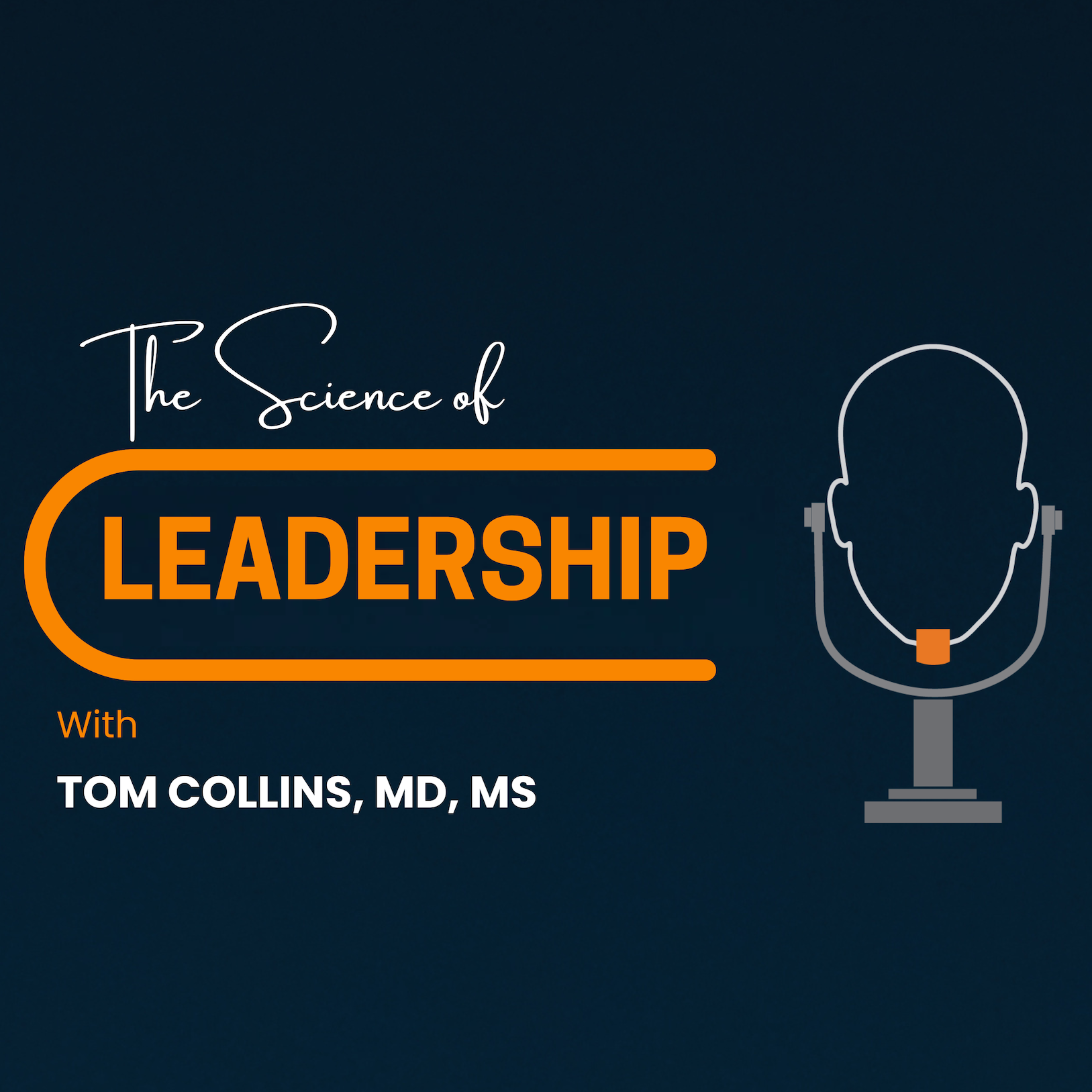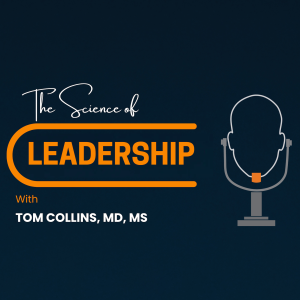
4.4K
Downloads
49
Episodes
The Science of Leadership is the podcast for listeners who want to build their leadership capabilities, providing valuable knowledge, insightful perspectives, and inspiring stories from expert leaders across various fields. The episodes range from one-on-one interviews with experts to discussions between the host and co-host. All episodes are supported by the latest scientific research in leadership, psychology, and other pertinent fields. Whether you’re an aspiring business leader, a healthcare professional, a community leader, or someone passionate about personal growth, our podcast is designed to equip you with the skills and wisdom needed to lead with confidence and impact. Join us on this journey to become a better leader and make a difference in your world!
Episodes

Tuesday Jan 07, 2025
Mastering Leadership Paradoxes | Ep. 23 | The Science of Leadership
Tuesday Jan 07, 2025
Tuesday Jan 07, 2025
Join us in this enlightening episode of @TheScienceofLeadership with host Tom Collins, as he delves into the complexities of paradoxical thinking in leadership with expert Dr. Marianne Lewis.
The conversation highlights how effective leaders can navigate opposing forces and tensions to foster innovation and growth within their organizations. Dr. Lewis introduces the concept of a paradox mindset, explaining its critical role in balancing contradictions without losing organizational momentum. She provides insights drawn from her research and work with industry leaders like Paul Polman, illustrating how paradoxical thinking can lead to extraordinary success in both financial and social dimensions.
Throughout the episode, key themes revolve around understanding paradoxes in leadership and their psychological underpinnings. Dr. Lewis emphasizes how default either-or thinking limits potential, while a paradox mindset encourages recognizing tensions as catalysts for creativity and learning. They explore the vital interplay between short-term and long-term strategies, as well as the balance between risk and reward, through various organizational examples including Unilever's sustainability initiatives and Toyota's production innovations. This dynamic discussion offers valuable perspectives for leaders keen on advancing their skills in handling complex, multifaceted challenges.
Keywords in this episode include leadership, paradox, innovation, mindset, tensions, paradox mindset, leadership paradoxes, organizational tensions, creative integration, leadership development, how to handle paradoxes in leadership, examples of paradoxical thinking in business, importance of paradox mindset for leaders, ways to thrive in leadership paradoxes, balancing innovation and efficiency in leadership.
Takeaways
• Embracing a paradox mindset as a leader involves seeing tensions as opportunities for learning, creativity, and growth.
• Leaders like Paul Polman at Unilever have successfully used paradoxical thinking to achieve unheard-of feats, such as doubling profits while halving environmental footprints.
• The innate human tendency towards either-or thinking can lead to limited vision and organizational failure in recognizing interconnected challenges.
• Notions like quality vs. cost, risk vs. reward, and innovation vs. efficiency aren't inherently contradictory but require a nuanced, integrative approach.
• Effective leadership melds the strength of command and structure with the compassion and care necessary for long-term success and team trust.
Key References:
- Duckworth, A. (2018). Grit: The Power of Passion and Perseverance. Scribner.
- Dweck, C. S. (2007). Mindset: The New Psychology of Success. Ballantine Books.
- Lewis, M. W. (2000). Exploring paradoxes: Toward a more comprehensive guide. Academy of Management Review, 25(4), 760-776.
- Lipman-Blumen, J. (2006). The Allure of Toxic Leaders: Why We Follow Destructive Bosses and Corrupt Politicians--and How We Can Survive Them. Oxford University Press.
- Miron-Spektor, E., Ingram, A., Keller, J., Smith, W. K., & Lewis, M. W. (2017). Microfoundations of organizational paradox: The problem is how we think about the problem. Academy of Management Journal, 61(1), 26-45.
- Smith, W. K., & Lewis, M. W. (2022). Both/And Thinking: Embracing Creative Tensions to Solve Your Toughest Problems. Harvard Business Review Press.
- Syed, M. (2015). Black Box Thinking: Why Most People Never Learn from Their Mistakes—But Some Do. Portfolio.

No comments yet. Be the first to say something!